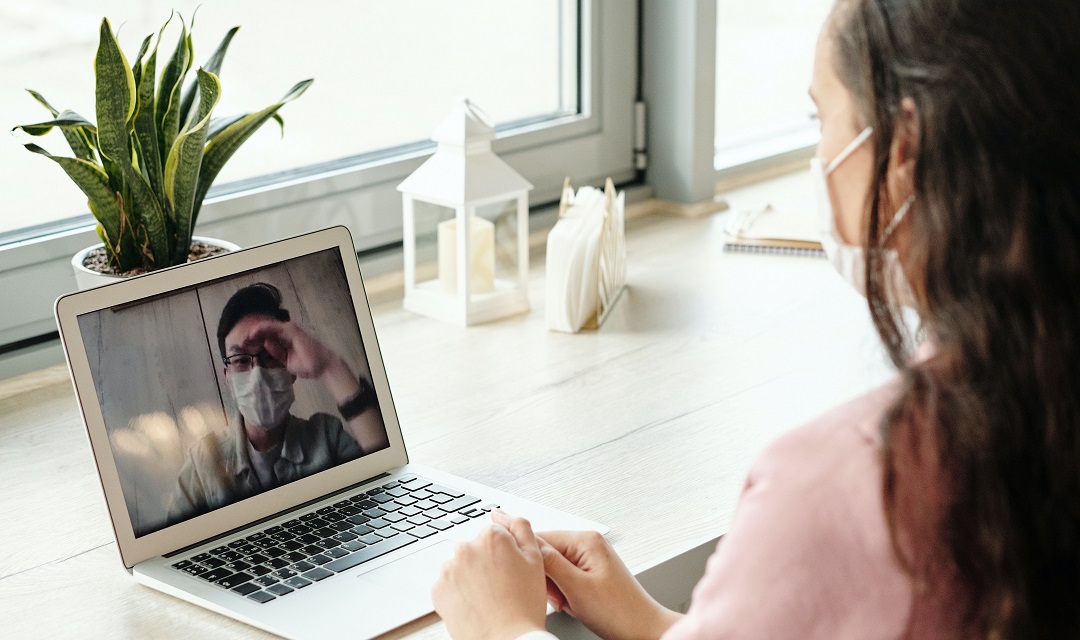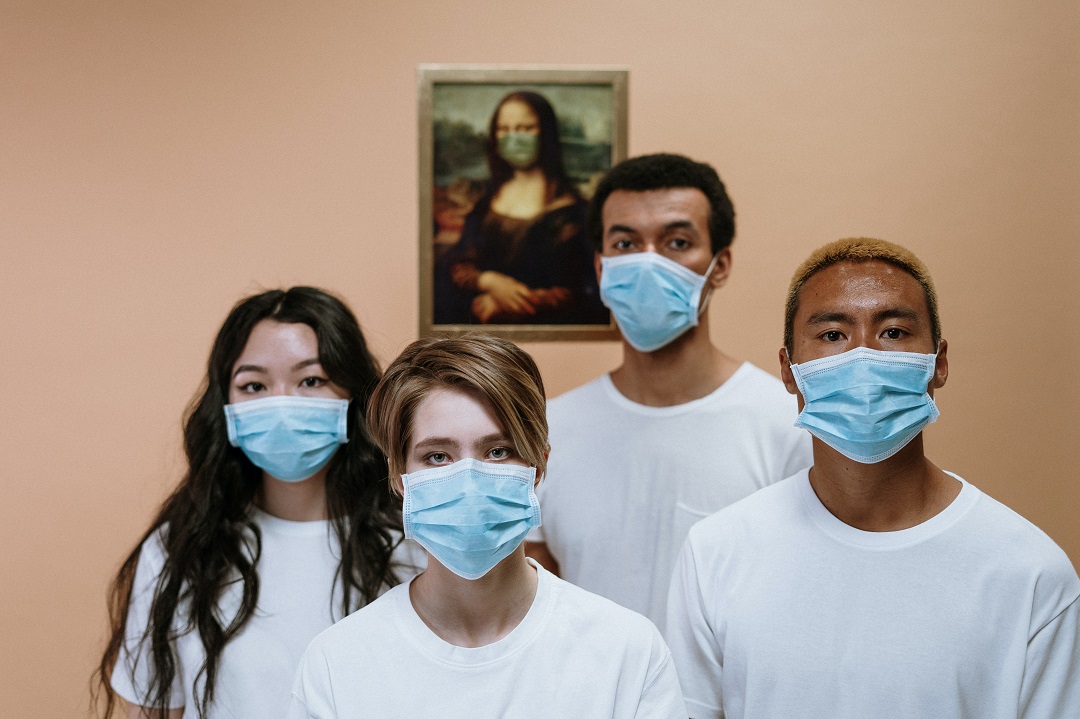COVID-19: Top 10 hidden impacts on autistic people

The COVID-19 pandemic has caused big changes to the lives of autistic people. But how, and in what ways?
I will explain the top 10 hidden impacts discovered by scientists.
In the last few years, the COVID-19 pandemic has changed the way we live and socialize. From lockdowns to masks and social distancing, COVID-19 has not only affected the world around us, but us as people as well.
These changes were more significant for neurodivergent people.
I recently read a news article about how hard it is for autistic kids with sensory issues to use rapid antigen tests.
Rapid antigen tests are a method of testing for COVID-19. You can do it yourself without needing a medical professional. It involves using a swab to take samples from the back of your nose or throat.
Autistic people who have sensory issues said that they find it hard to use rapid antigen tests because the swab touching the back of the throat and nose can hurt and upset them.
In 2022, rapid antigen tests are often needed to go to events such as concerts and other large social gatherings.
As it may be difficult for autistic people with sensory issues to use rapid antigen tests, they face another barrier in going to these events. Autistic people are at risk of being left out because of it.
This article made me curious about other effects of COVID-19 unique to autistic people, so I read more.
Scientific articles published in the past two years said that the pandemic has not only affected autistic kids, but autistic adults too.
Scientists asked autistic adults and the carers of autistic kids questions about their COVID-19 experiences and opinions.
Their responses helped the scientists learn about the biggest challenges autistic people faced during the pandemic.
Lots of autistic people said that COVID-19 made things harder and more stressful.
But despite all the bad parts of the pandemic, some autistic people reported good changes to their lives, like less social stress.
I am here to tell you about the top 10 ways COVID-19 has impacted autistic people in these areas:
- Mental health.
- Physical health.
- Working and learning.
- Going to see doctors and therapists.
And why do we need to know this? Whether you are neurotypical or neurodivergent, understanding is the first step to creating inclusive spaces and supporting each other.
If this article uses words you haven’t learned yet, you can learn about them in our glossary here: https://atypicalscience.org/about/glossary/

1. COVID-19 caused more anxiety and depression
Around 20% of autistic people have been diagnosed with anxiety.
Around 11% of autistic people have been diagnosed with depression.
Several aspects of the pandemic made this anxiety and/or depression worse:
- Autistic people who catch COVID-19 might get sicker than allistic (non-autistic) people. This made some autistic people more worried about catching COVID-19.
- When asked, autistic people said that COVID-19 made it harder for them to keep their jobs and work safely, so they also felt worried about their jobs.
- Lockdowns and panic-buying made it harder for people to go shopping for food and medicines. So autistic people felt worried about getting their safe foods and medicine they need.
- Autistic people said that social distancing and lockdowns made it harder to access their social support systems. This meant that autistic people experienced a lot of social isolation, which can make depression worse.
2. COVID-19 changed children’s mood
Parents and carers of autistic children noticed that their children were upset, irritable, and having meltdowns more often and more intensely during COVID-19.
The parents and carers suggested two main reasons for this:
- COVID-19 caused regular therapies and supports to be cancelled or changed. This meant that autistic children could not go to appointments that supported their body and mind.
- The pandemic also increased anxiety (see point 1).
This shows that autistic people need regular access to appointments and care. Yes, online appointments have helped provide support to autistic people during the pandemic, but it is not a perfect solution.
3. COVID-19 caused a loss of normal routines
Autistic people said that COVID-19 caused many routines to change or simply disappear. These changes were mostly out of their control.
Autistic people also said that this loss of routine caused lots of mental and emotional stress. It was hard to create new and safe daily and weekly routines during lockdowns.
4. Lockdowns and social distancing have caused more social isolation
Before the pandemic started, autistic people said that they were more likely to be socially isolated (lonely) than allistic people.
Many allistic people do not understand and are not accommodating of the different communication styles autistic people use. This means autistic people are often left out of events and conversations.
Learn more about the differences in communication styles between autistic and neurotypical people here: https://atypicalscience.org/autism-communication-deficit/.
When the pandemic started, autistic people said they felt even more lonely. They talked about social isolation and loneliness in a bad way but, surprisingly, a good way too.
The good way: Autistic people with social anxiety or who get socially overloaded found that more social isolation meant they felt anxious and overloaded less often. They liked that they did not have to go to face-to-face meetings or social events.
The bad way: When autistic people with social anxiety thought about going to social gatherings and face-to-face meetings in the future, they felt more stressed.
Autistic people also said they felt more lonely and less connected with other people. This loneliness led to more depression and worse mental health.
Because of this, autistic people with social anxiety said they need better support as our world continues to change.
5. Being more connected online has been good for mental health
Online contact has kept the world going the past few years.
The big move to online communication has helped forge strong online communities.
Autistic people said they found support and friends in online communities. These communities are full of people who share similar lived experiences.
Feeling connected online has been good for mental health and a silver lining of the pandemic for autistic people.
6. Autistic people might get sicker if they catch COVID-19
Autistic people are more likely to have other health conditions such as immune problems.
Your immune system normally protects your body from bacteria or viruses that cause infection, like the COVID-19 virus.
If you have immune problems, it means your body can’t protect itself as well as it should. This makes catching COVID-19 very dangerous for people with immune problems.
If an autistic person with immune problems catches COVID-19, they might have worse symptoms and worse side effects in the long run.
7. Lockdowns have caused autistic people to be less physically active
Lockdowns have caused everybody to be stuck at home. Our work, school, and communities have moved online.
Since the start of the pandemic, autistic people said that their screen time has increased. Screen time is the amount of time spent looking at screens such as phones, tablets, televisions, or computers.
At the same time, when asked about their movement, autistic people said that they had been doing less exercise.
Scientists and health care professionals are worried that this change will be harmful to autistic people’s health.
Scientists have said there is a need for body movement and exercise to become part of the routine. Exercise has been shown to support autistic people’s body and mind.
Read about hydrotherapy, a safe and social group exercise for autistic kids that can help to improve health of the body and mind: https://atypicalscience.org/hydrotherapy-autistic-kids/
8. It has been hard to get used to working and learning from home
Some autistic people with social anxiety have found working and studying from home makes them feel less anxious (worried). But some of these people have said they now have more anxiety when thinking about going back to work and classes in person.
Other autistic people said that they found that changing to online work and learning has made it harder to get modifications and accommodations for those who need them.
Modifications and accommodations are changes to the way things work or are placed to make them easier for neurodivergent or disabled people.
For example, providing written instructions instead of verbal instructions, or changing the way a desk is set up to make it easier to use.
Online work and learning has also caused some anxiety over using video calls and technology. Autistic people reported being worried about how to act on video calls.
9. Information about COVID-19 has been hard to understand
New information and advice about COVID-19 comes out every day! Sometimes, old information is changed as we learn new things.
It can be very confusing to understand.
Autistic adults said that information about COVID-19 was badly explained. The information had scientific language that they didn’t understand. The information did not answer the questions autistic adults had.
Autistic adults said they wanted more COVID-19 information specifically for autistic people.
They suggested that it would be helpful if autism networks such as the Autistic Self Advocacy Network were the ones giving the information.
Autistic adults said that they wanted these networks to be the ones giving the support to help autistic people understand the information.
Visit the Autistic Self Advocacy Network’s (ASAN) COVID-19 information here: https://autisticadvocacy.org/resources/covid-pl/.
10. Medical and therapy appointments were being cancelled
Up to 50% of the autistic adults and carers of autistic children said that their regular appointments and therapies had been changed or cancelled.
This is because these appointments were considered ‘elective’ or optional, meaning that they are undertaken by choice and are not urgent or important.
However, for many, these ‘elective’ appointments had been supporting the autistic person’s coping skills, physical health, and mental health.
They said that not being able to go to medical appointments or therapy appointments caused more anxiety and more behavioral changes.
Well, what now?
The past few years have undeniably been challenging for everyone, but the impact on autistic people has been overlooked.
Although there have been some benefits of online work and communication, COVID-19 has made many autistic people’s mental health, physical health, and ability to work or study worse.
While COVID-19 is not yet going away, many lockdowns have ended.
As we return to work and study, we need to be aware of the difficulty of this transition and ensure there are appropriate supports available for autistic people.
If you or your child are struggling with worry, stress, loneliness, sadness, or other types of mental health, you are not alone. We encourage you to make an appointment with your usual doctor or call your local mental health hotline.
Lifeline (Australia): 13 11 14
Mental Health Hotline (USA): 866 903 3787
SANEline (UK): 11 61 23
Article authors
Lead author: Stephanie Lam (BMed Candidate)
Supporting author: Dr Skye Marshall (PhD, APD)
Meet our writers: https://atypicalscience.org/about/team/
Disclaimers
All information provided on this website and in any of our associated platforms is general in nature and should not be considered as a recommendation or advice specifically for you or your networks, business, or others connected to you. The content of this article is for information purposes only, is not health or personal advice, and you rely on this information at your own risk.
Please seek individualized professional advice before making any decisions about health, medical, personal, business, or social care.
The authors of this post have no conflicts of interest.
References
Alonso-Esteban Y, López-Ramón MF, Moreno-Campos V, Navarro-Pardo E, Alcantud-Marín F. A systematic review on the impact of the social confinement on people with autism spectrum disorder and their caregivers during the COVID-19 pandemic. Brain Sci. 2021; 11(11): 1389. https://doi.org/10.3390/brainsci11111389
Amorim R, Catarino S, Miragaia P, Ferrera C, Viana V, Guardiano M. The impact of COVID-19 on children with autism spectrum disorder. Rev Neuro. 2020; 71(8): 285-291. https://doi.org/10.33588/rn.7108.2020381
Den houting J. Stepping out of isolation: autistic people and COVID-19. Autism Adulthood. 2020; 2(2). https://doi.org/10.1089/aut.2020.29012.jdh
Garcia JM, Lawrence S, Brazendale K, Leahy N, Fukuda D. Brief report: the impact of the COVID-19 pandemic on health behaviours in adolescents with autism spectrum disorder. Disabil Health J. 2021; 14(2). https://doi.org/10.1016/j.dhjo.2020.101021
Kalvin CB, Jordan RP, Rowley SN, et al. Conducting CBT for anxiety in children with autism spectrum disorder during COVID-19 pandemic. J Autism Dev Disord. 2021;51: 4239-4247. https://doi.org/10.1007/s10803-020-04845-1
Lai MC, Kassee C, Besney R, Bonato S, Hull L, Mandy W et al. Prevalence of co-occurring mental health diagnoses in the autism population: a systematic review and meta-analysis. Lancet Psychiatry. 2019; 6(10): 819-829. https://doi.org/10.1016/S2215-0366(19)30289-5
Oomen D, Nijhof AD, Wiersema JR. The psychological impact of the COVID-19 pandemic on adults with autism: a survey study across three countries. Mol Autism. 2021; 12(21). https://doi.org/10.1186/s13229-021-00424-y
Join our community
Sign-up for regular updates on new content and opportunities such as scholarships and resources.


